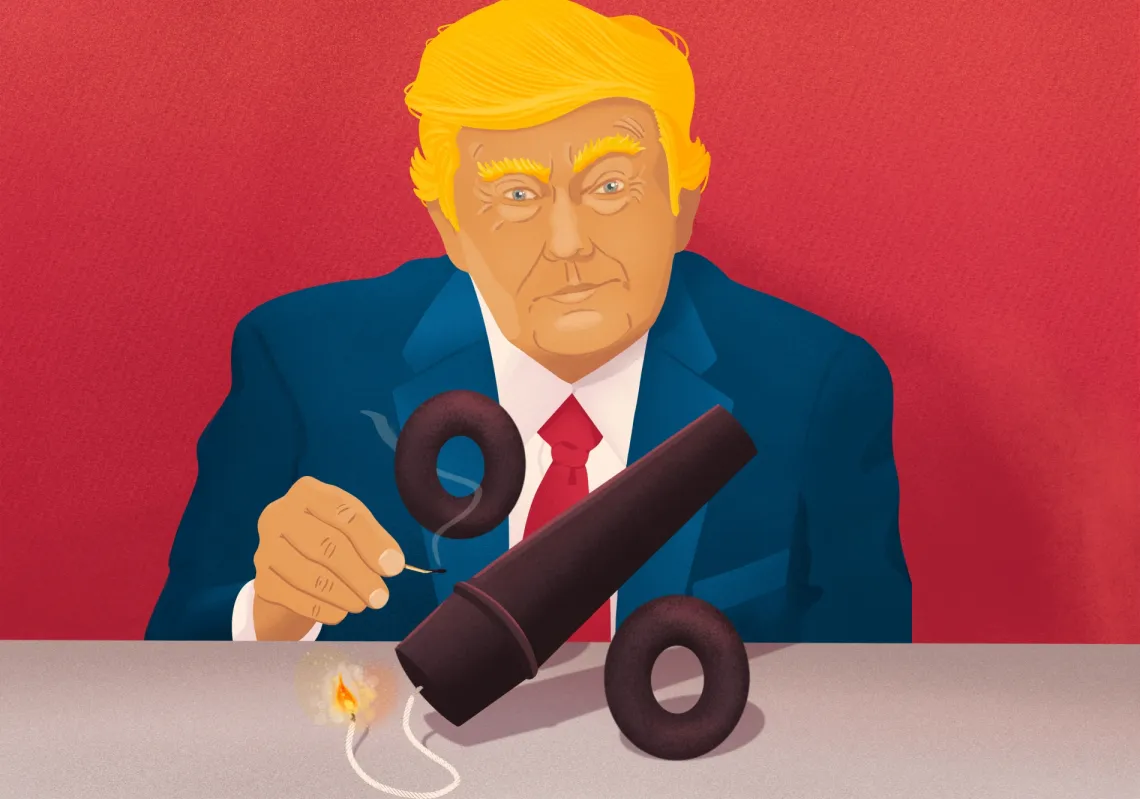Hezbollah’s leadership, weapons, finances, and communications all took a major hit in the latter half of 2024, targeted by Israel’s intelligence services and armed forces.
There are rumours that it is rebuilding, but details remain vague as to the extent to which it needs to and the extent to which it has done. Meanwhile, in Syria, Hezbollah has lost an ally in Bashar al-Assad. None of this is lost on Lebanon’s politicians.
The discussion is timely because the country’s parliamentary session to elect a president is being held this week. Ahead of it, Hezbollah has been working hard to project the image that it has not only recovered but is now stronger than before.
The group can only show this politically, given that southern Lebanon is still occupied by Israel, which continues to strike sites, demolish homes, destroy fields, and reposition its forces despite a 60-day ceasefire still supposedly in effect.
What Israel wants
Israel’s objectives in southern Lebanon up to the Litani River are still in question. Last week, it targeted sites that it alleged were Hezbollah missile platforms. Whether the Israeli army intends to fully withdraw from the southern villages after 60 days is in doubt. Some reports suggest that a 30-day extension will be sought.
In Israeli media, there have been hints that Tel Aviv will keep its military positions in certain areas of southern Lebanon and establish a 3km buffer zone along the border. It is uncertain if Hezbollah would (or could) respond if Israel delays its withdrawal.
US envoy Amos Hochstein’s visit to Beirut on Monday coincided with the Israeli army’s withdrawal from the town of Naqoura. Optimists will hope this signals Israel’s intent to adhere to the ceasefire’s deadline, but Hochstein’s comments in Beirut left room for doubt when he dodged a definitive commitment to the timeline.

Hezbollah's Deputy Secretary-General Naim Qassem said the group reserves the right to respond to Israeli violations at a time and a place of its choosing—a familiar refrain heard from Iran and its proxies over recent years.
While Hezbollah accuses Israel of breaching the ceasefire, Israel accuses Hezbollah of stalling its withdrawal from territory south of the Litani River and of refusing to hand over its weapons to the Lebanese army. Israel feels this justifies its continued strikes.
All this places immense pressure on Lebanon's internal politics, as one of Israel's apparent objectives in the south is to compel the Lebanese government and army to put pressure on Hezbollah. The message is clear: unless Hezbollah backs down and adheres to the terms of the ceasefire, war will recommence.
Iran reviews its strategy
While the Lebanese government is understandably eager to avoid another conflict, Hezbollah's stance remains ambiguous. Yet many think the power to coerce Hezbollah does not rest with the Lebanese government or army but with Iran. That has long been given but with Donald Trump due in the White House soon, Tehran may be reconsidering.
If Iran decides to abandon its 'advanced defence' strategy (which hinges on it arming and training regional proxies as its first line of defence), Hezbollah may cooperate with the Lebanese army, both in terms of its withdrawal and weapons.














